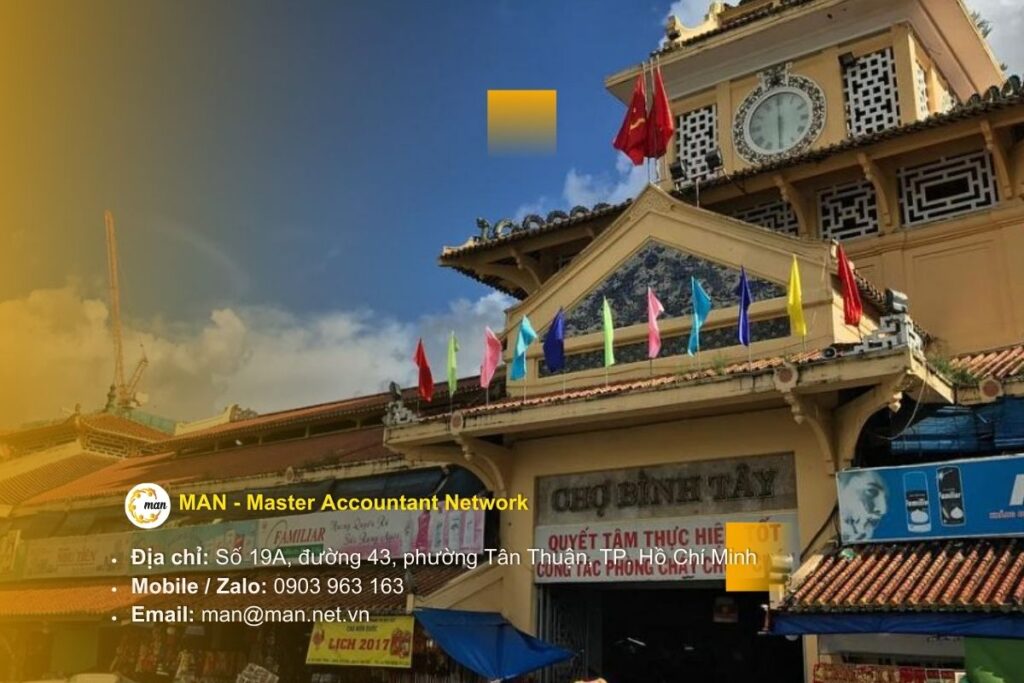In an increasingly competitive economy, small and medium-sized enterprises (SMEs) often have to rely heavily on borrowed capital to maintain cash flow and invest in expansion. Therefore, SME interest expenses become an important factor in financial strategy, not only affecting profitability but also determining the long-term sustainability of the business. If not managed effectively, SME interest expenses can reduce profits, put pressure on debt repayment ability and pose legal risks when settling taxes. In particular, the current legal system such as the Law on Corporate Income Tax, Decree 132/2020/ND-CP The revised decrees have set out strict regulations on controlling and deducting interest expenses in related-party transactions.
Introducing SME loan interest costs
What most concerns many SMEs is determining which interest expenses are reasonable and tax deductible and which are subject to control. To clarify this, it is necessary to first understand the legal framework that directly regulates SME interest expenses, including the Corporate Income Tax Law and related decrees. This is the basis for businesses to not only comply with regulations but also have a more effective cost optimization strategy.
Current legal framework
To effectively manage SME interest expenses, businesses need to understand the current legal framework being applied in Vietnam. The most important legal basis is the Law on Corporate Income Tax (CIT), which specifically stipulates conditions for deductible and non-deductible expenses when determining taxable income. For SMEs with related-party transactions, Decree 132/2020/ND-CP plays a particularly important role when it sets out principles for controlling interest expenses, limiting total net interest expenses to no more than 30% EBITDA (earnings before interest, taxes, depreciation and amortization).
See also: Interest expense is controlled 2025
In addition, the decrees amending and supplementing such as Decree 68/2020/ND-CP Or the guiding circulars have created additional transition mechanisms, helping businesses be more flexible in allocating interest expenses over multiple tax periods.
Compliance with this legal framework not only helps businesses ensure the validity of tax settlement but also limits the risk of cost exclusion, leading to sudden increases in tax obligations. Especially for SMEs that are inherently dependent on loans, understanding and correctly applying legal regulations is the foundation for both optimizing finances, improving transparency and strengthening reputation with tax authorities and partners.
Understanding the legal framework and calculation methods is just the beginning. In fact, what worries SMEs the most is not the regulations, but how to turn that knowledge into an effective management tool. Because SME interest expenses are not simply a financial expense, but also a factor that determines profitability, cash flow health and capital safety. Therefore, controlling interest expenses in a business's financial strategy plays a particularly important role and needs to be carefully analyzed to avoid risks and create competitive advantages.
Concept of SME business interest costs
To understand why controlling interest expenses is so important, businesses first need to have a firm grasp of the concept and scope of application according to the law. Therefore, understanding the definition of interest expenses according to accounting standards and tax regulations is a necessary first step for SMEs to manage and optimize interest expenses of small and medium enterprises in a correct, transparent and legally compliant manner.
Definition of SME business interest expense according to accounting standards and tax regulations
According to Vietnamese Accounting Standards (VAS)Interest expenses are expenses that a business must pay that are directly related to borrowing capital for production, business or investment purposes. These expenses may include bank interest, bond interest, costs associated with credit contracts, credit guarantee fees or similar financial expenses incurred during the borrowing process.
In terms of tax, the Law on Corporate Income Tax (CIT) and its guiding documents clearly stipulate the scope and conditions for interest expenses to be included in reasonable expenses when determining taxable income. Specifically, only interest expenses arising from actual loan transactions, with full valid documents, serving production and business activities are deductible. On the contrary, interest expenses exceeding the control level, arising from non-transparent transactions or lacking legal documents will be excluded.
For SME interest expenses, this regulation is even more important because businesses often have a high debt ratio and are at risk of exceeding the ceiling for controlling interest expenses according to Decree 132/2020/ND-CP (maximum 30% EBITDA). Therefore, understanding the correct definition and scope of interest expenses according to both accounting standards and tax regulations is the foundation for businesses to effectively manage their finances, both optimizing costs and complying with the law.
The Importance of Controlling SME Interest Expenses in Financial Strategy.
Effective control of SME interest costs brings many practical benefits, specifically through the following aspects:
- Optimizing profits: Reasonable management of interest expenses helps businesses balance between loans and equity, thereby reducing financial cost pressure and increasing net profit.
- Ensuring legal compliance: Small and medium-sized enterprises can avoid the risk of having interest expenses excluded when settling taxes if they comply with the provisions of the Law on Corporate Income Tax, Decree 132/2020/ND-CP and related decrees.
- Improve financial transparency: Good control of interest costs helps financial reports to be clear and transparent, increasing prestige with banks, partners and investors.
- Limiting financial risks: Tightly managing interest expenses helps businesses avoid excessive financial leverage, cash flow imbalances or increased debt burdens.
- Enhanced competitiveness: SMEs are able to use capital more efficiently, maintain stable cash flow and create sustainable competitive advantages in the market.
SME interest expenses are considered reasonable and are deductible when calculating taxes.
According to the provisions of the Law on Corporate Income Tax and guiding documents, only interest expenses arising from actual transactions, with full documents, credit contracts and directly serving production and business activities are considered reasonable for tax deduction. This includes:
- Bank interest expenses arise from legal loans for working capital, investment in machinery and factories.
- Interest expenses on loans from credit institutions, financial companies or business support funds with legal operating licenses.
- Costs associated with the loan contract such as credit guarantee fees, corporate bond issuance fees or consulting fees directly related to the loan.
Deducting these expenses helps small and medium-sized enterprises reduce tax obligations, optimize profits, and demonstrate transparency in financial management.
Non-deductible or controlled SME interest expenses
In addition to reasonable expenses, the law also clearly stipulates types of interest expenses that are not deductible or limited when calculating corporate income tax. Specifically:
- Interest expense exceeding the control limit: According to Decree 132/2020/ND-CP, the total net interest expense of an enterprise (including small and medium enterprises) must not exceed 30% of total net profit from business operations plus interest expense and depreciation (EBITDA). If exceeded, the difference will not be deductible.
- Interest expenses from loans not used for production or business activities: For example, borrowing capital for personal expenses of business owners or for activities unrelated to business.
- Interest costs from non-transparent transactions: Loans without contracts, unproven origin or loans from individuals or organizations not permitted to lend according to regulations.
- Interest expense arising when charter capital is not fully contributed: If the enterprise has not fully contributed charter capital as committed, the interest expense arising corresponding to the missing charter capital will not be included in reasonable expenses.
For SME loan interest expenses, not clearly distinguishing between deductible and non-deductible expenses often leads to the risk of being excluded by the tax authority, leading to an increase in corporate income tax payable. Therefore, small and medium enterprises need to build a transparent loan file management system, closely comparing with legal regulations to avoid financial loss and maintain long-term stability.
How to calculate SME loan interest costs

Correctly calculating SME interest expenses not only helps accurately reflect the financial situation but also serves as a basis for determining reasonable expenses when settling taxes. According to current regulations, the formula for calculating total deductible interest expenses is as follows:
| EBITDA = Net profit + Interest – Interest on deposits, loans + Depreciation |
Example: In 2024, ABC Company Limited is in the case of related party transactions and has the following corporate income tax settlement information. Net profit from production and business activities is 700,000,000 VND, depreciation expense is 50,000,000 VND, loan interest is 380,000,000 VND and interest earned from lending deposits is 20,000,000 VND.
Interest deducted in 2024 = 30% x EBITDA = 333,000,000 VND
In 2024, ABC Company Limited's deductible interest is 333,000,000, the remaining 47,000,000 VND will be transferred to the following year (no more than 5 years).
Source: Financial report
Common challenges when accounting for SME interest expenses
Accounting for interest expenses for SMEs often faces many difficulties due to both capital pressure and strict compliance with legal regulations. Some typical challenges include:

- Heavily dependent on borrowed capital: Most businesses have limited equity capital and must rely on banks or credit institutions to maintain operations. This often causes the interest expense ratio to be high, easily exceeding the 30% EBITDA control level according to Decree 132/2020/ND-CP.
- Risk of expenses being excluded due to lack of valid documents: Many businesses have not yet built a complete loan application system, from credit contracts, payment documents to documents proving the purpose of the loan. When the tax authority inspects, expenses without legal basis will be excluded.
- Errors in determining deductible interest expenses: Due to limited accounting and tax personnel, SMEs often make mistakes when calculating EBITDA or classifying which loans are deductible. This leads to the risk of increasing unexpected tax obligations.
- Not yet utilized interest cost pass-through mechanism: Many businesses do not know or have not applied the provisions of Decree 68/2020/ND-CP, which allows the portion of interest expenses exceeding the ceiling to be carried forward to the next period. As a result, businesses suffer losses and cannot optimize their tax obligations.
- Lack of long-term financial management strategy: Some SMEs focus on short-term loans to meet immediate needs without considering capital structure, leading to increasingly inflated interest costs, putting pressure on cash flow and profits.
The above challenges show that accounting for SME interest expenses is not only a technical accounting problem, but also a strategic management problem. If not handled properly, businesses can easily fall into a situation where they are both financially burdened and have increased tax obligations due to excluded expenses.
The challenges in accounting for and managing SME interest expenses show that simply complying with regulations is not enough for businesses to ensure financial security. SMEs need proactive, strategic solutions to optimize costs, minimize risks and take advantage of available support policies.
Optimal solution for SME loan interest costs
To effectively manage and minimize risks from SME interest costs, small and medium enterprises need to proactively apply many strategic solutions, both ensuring compliance with the law and optimizing financial costs. Some practical solutions include:

- Restructuring capital sources and managing financial leverage: SMEs should reasonably balance between equity and debt capital. Over-reliance on debt will cause interest expenses to swell and easily exceed the 30% EBITDA control level. Financial experts recommend that SMEs maintain a safe debt and equity ratio to help reduce cost pressure.
- Diversify capital mobilization channels: Instead of relying solely on banks, SMEs can seek support funds for small and medium enterprises, preferential credit programs of the State, or issue corporate bonds in accordance with regulations. These channels help reduce borrowing costs and limit financial risks.
- Take advantage of tax support policies and transition mechanisms: SMEs need to understand the provisions of Decree 68/2020/ND-CP, which allows interest expenses exceeding the ceiling to be transferred to the next tax periods. This is a legal solution, helping businesses reduce short-term tax pressure and allocate costs more reasonably.
Optimizing SME interest costs is not about cutting corners, but about smart financial management, combining capital strategy, management tools and policy support.
SME interest expense is not only a normal financial item but also closely related to transparency, profitability and legal compliance. After reviewing the concept, legal basis, calculation method, challenges as well as optimal solutions, it can be affirmed that controlling SME interest expense is a vital factor in the financial strategy of the enterprise. This is also an important premise for us to draw appropriate conclusions and orientations for the enterprise in the future.
Conclude
SME interest expense becomes a strategic task rather than simply an accounting function. An SME that knows how to effectively manage interest expense will ensure legal compliance, optimize capital resources, enhance competitiveness and maintain sustainable development.
To achieve that, businesses need to synchronously combine many solutions such as reasonable capital structure, diversifying funding sources, taking advantage of the interest cost transfer mechanism, applying financial management technology and consulting tax consultants. This is the way to help businesses not only minimize the risk of being excluded from expenses when settling taxes but also improve the efficiency of capital use in the long term.
Understanding and managing SME interest costs well is not only the key to optimizing costs, but also the foundation for building a transparent and safe financial strategy for the business in the future.
If the business is having difficulty in accounting, affiliate transactions and control or optimize SME interest costs. With practical experience and in-depth legal knowledge, MAN – Master Accountant Network is ready to accompany businesses to build effective capital strategies, minimize tax risks and maximize financial benefits.
Contact information MAN – Master Accountant Network
- Address: No. 19A, Street 43, Tan Thuan Ward, Ho Chi Minh City
- Mobile / Zalo: 0903 963 163 – 0903 428 622
- E-mail: man@man.net.vn
Editorial Board: MAN – Master Accountant Network




